7 oven cleaning mistakes to avoid – and what to do instead
From deep cleans to quick wipe downs, this is how to keep your oven looking gleaming all year round

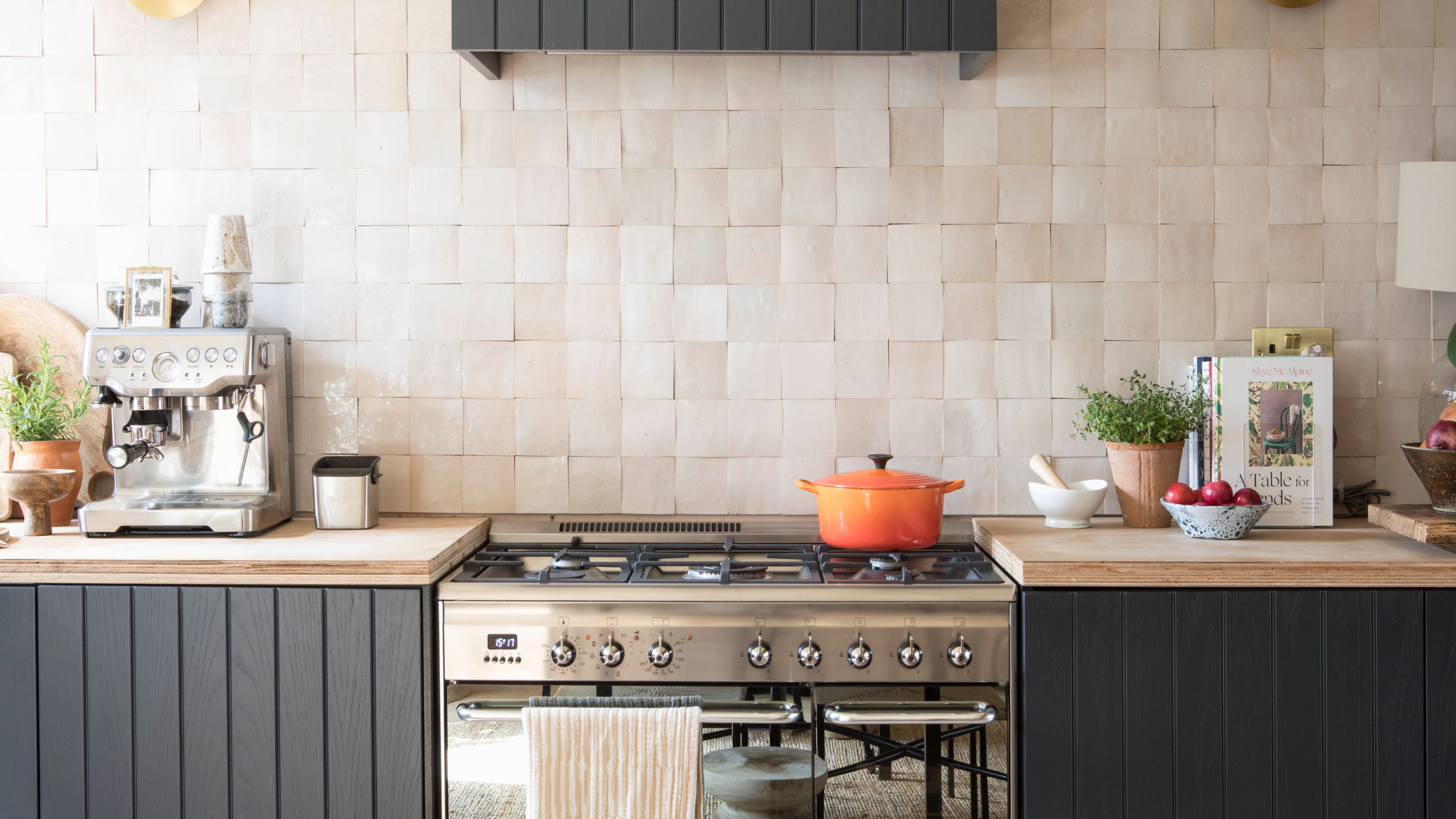
Sign up to our newsletter for style inspiration, real homes, project and garden advice and shopping know-how
You are now subscribed
Your newsletter sign-up was successful
EDITOR’S NOTE: An earlier version of this article included a quote from a purported expert whose credentials we have not been able to verify. The quote has been removed. We regret this lapse in our verification process and have updated our internal protocols to reduce the risk of recurrence.
Even though we all probably use our oven every day, there are a surprising number of oven cleaning mistakes people make all the time. Even though it’s not the quickest or most pleasant of tasks – especially if you leave it a while between cleans – it is important to keep on top of it.
Apparently, half of Brits (54%) don’t clean their oven as frequently as recommended, while shockingly one in ten Brits have never cleaned their oven, reveals a recent survey by Zanussi.
‘Keeping your oven free from dirt and grime build-up is essential to ensure peak performance in any busy kitchen environment,’ says Sarah Whitfield, product manager at appliance brand Belling.
‘Not only does a clean oven perform more energy efficiently, but it can also improve the taste and quality of the meals cooked within it, as well as ensuring the appliance is safe,’ explains Colin Swift, Zanussi appliance expert.
7 oven cleaning mistakes to avoid – And what to do instead
Before you jump into action to tackle cleaning your oven, there are a few mistakes that some of us could be making without realising.
The experts have outlined 7 of the biggest mistakes below, as well as what to do instead, to leave you with a gleaming oven going forward.
1. Cleaning with harsh chemicals
There are some great oven cleaner products out there but you should really avoid immediately delving in with harsh chemicals. Certain chemicals can ‘affect the microbiome, your health and can have a negative impact on your food,’ warns Sue Caldwell, managing director of Clean Living.
Sign up to our newsletter for style inspiration, real homes, project and garden advice and shopping know-how
Instead opt for more natural alternatives. You’ll probably already have these two non-toxic ingredients in your kitchen cupboards. Both baking soda and white vinegar are great natural cleaners.
They can be combined to make a paste which can be applied overnight to break down any grease, dirt or grime. Then simply wipe away with a clean, damp cloth. You can clean your oven with lemon, too.
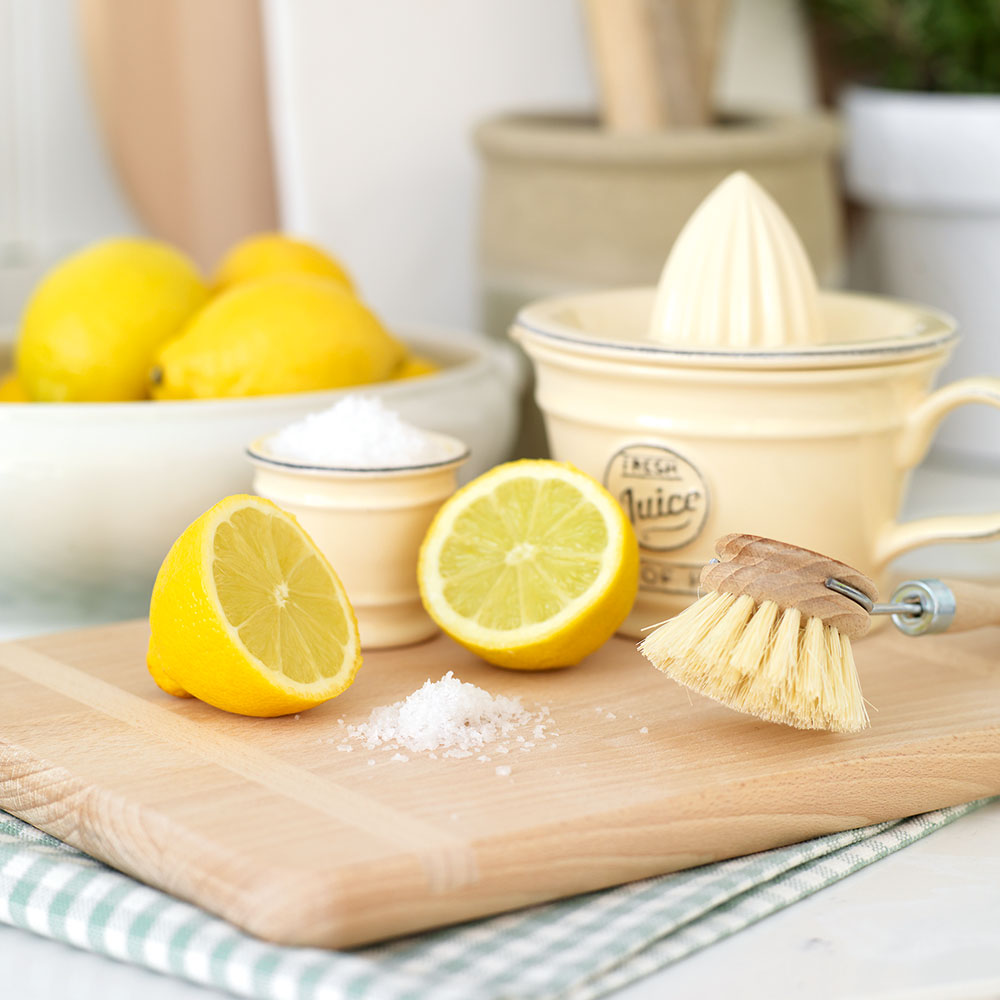
2. Waiting until it is a substantial task instead of cleaning it regularly
‘Many people wait until their oven is heavily soiled before attempting to clean it,’ says Craig McCarthy, cooking product manager for Haier UK & Ireland at Haier Europe. ‘Neglecting regular maintenance can make the cleaning process more difficult and time-consuming.’
‘Regular maintenance will make the cleaning process more manageable and help prevent the need for aggressive cleaning methods.'
3. Not cleaning spills or crumbs the same day that they happen
‘One mistake we’re all guilty of making is not cleaning up spills straight away, making the cleaning job harder in the long term,’ says Andrea Philips, from Airtasker's lifestyle editorial Tteam. From pasta bakes that have bubbled over and crumbs from a pizza, to sauce and oil spills, ‘when left and not cleaned straight away, food residue and grease can turn into carbon, releasing a potent burning smell when in use.’
‘These carbon-based fumes can change the taste of your food like cakes, bread or anything else you are preparing with the oven,' warns Sue from Clean Living. 'Baking food inside a dirty oven will absorb fumes. This food will then end up having a bad taste.'
Get into the habit of giving your oven a quick check for any spills or crumbs when you finish cooking. Just make sure that the oven has cooled down completely before you reach for your rubber gloves.
‘Our expert advice is to incorporate a little-and-often approach to cleaning after cooking, once the surface has completely cooled, ensuring you catch any minor spills that could later turn into stubborn grease spots if left untreated,’ agrees Sarah from Belling.
Another great tip from Andrea is, ‘when you're done baking or roasting, put a heat-resistant bowl of water inside and heat for twenty minutes at high temperatures. The steam loosens the grease and when the oven cools, do a final wipe down using a paper towel.’
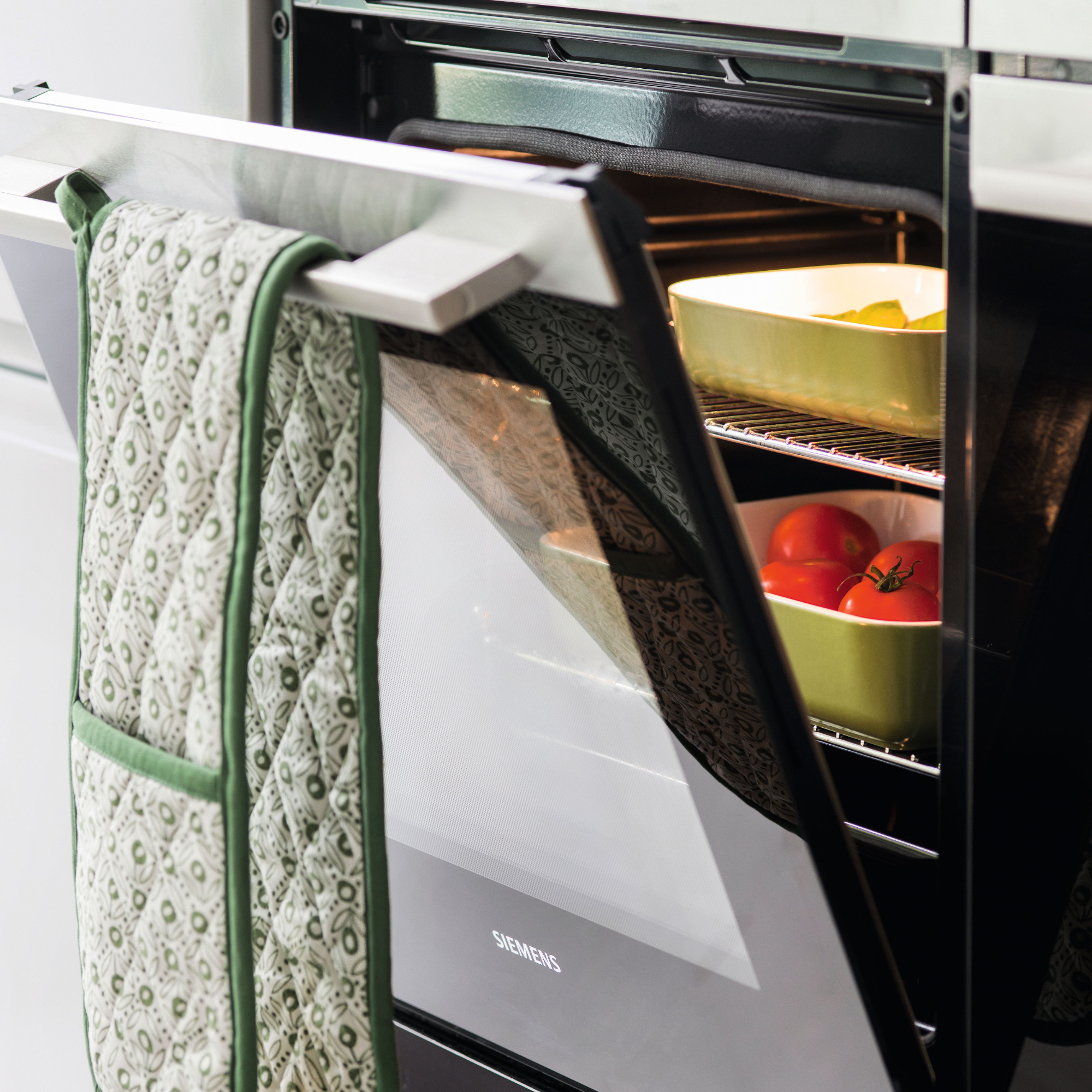
4. Forgetting about the racks
‘Often, people clean only the oven's interior and forget the racks,’ notes Ava Wilson, chief editor at Unclutterer. However, ‘dirty racks can affect cooking performance and become harder to slide in and out.’
You can either remove the racks and soak them in a soapy solution, then scrub, rinse, and dry them before putting them back, as many of the experts would recommend. Or, you can also ‘use a baking soda and vinegar solution to scrub away the grime,’ says Craig.
5. Using abrasive materials on the glass door
We know it may be tempting to reach for something like a steel wool brush if your oven door is caked with grease and grime. But you actually want to take it slow and gentle when cleaning a glass oven door to stop it from being scratched or damaged.
‘To achieve a sparkly glass door, opt for a microfibre cloth with warm soapy water, followed by a vinegar-based glass cleaner for a crystal-clear finish,’ advises Sarah from Belling.
Not only does ‘regular cleaning of your oven door maintain a pristine appearance,’ it ‘also minimises the need for unnecessary door openings, preventing heat loss and conserving energy during cooking,’ she declares.
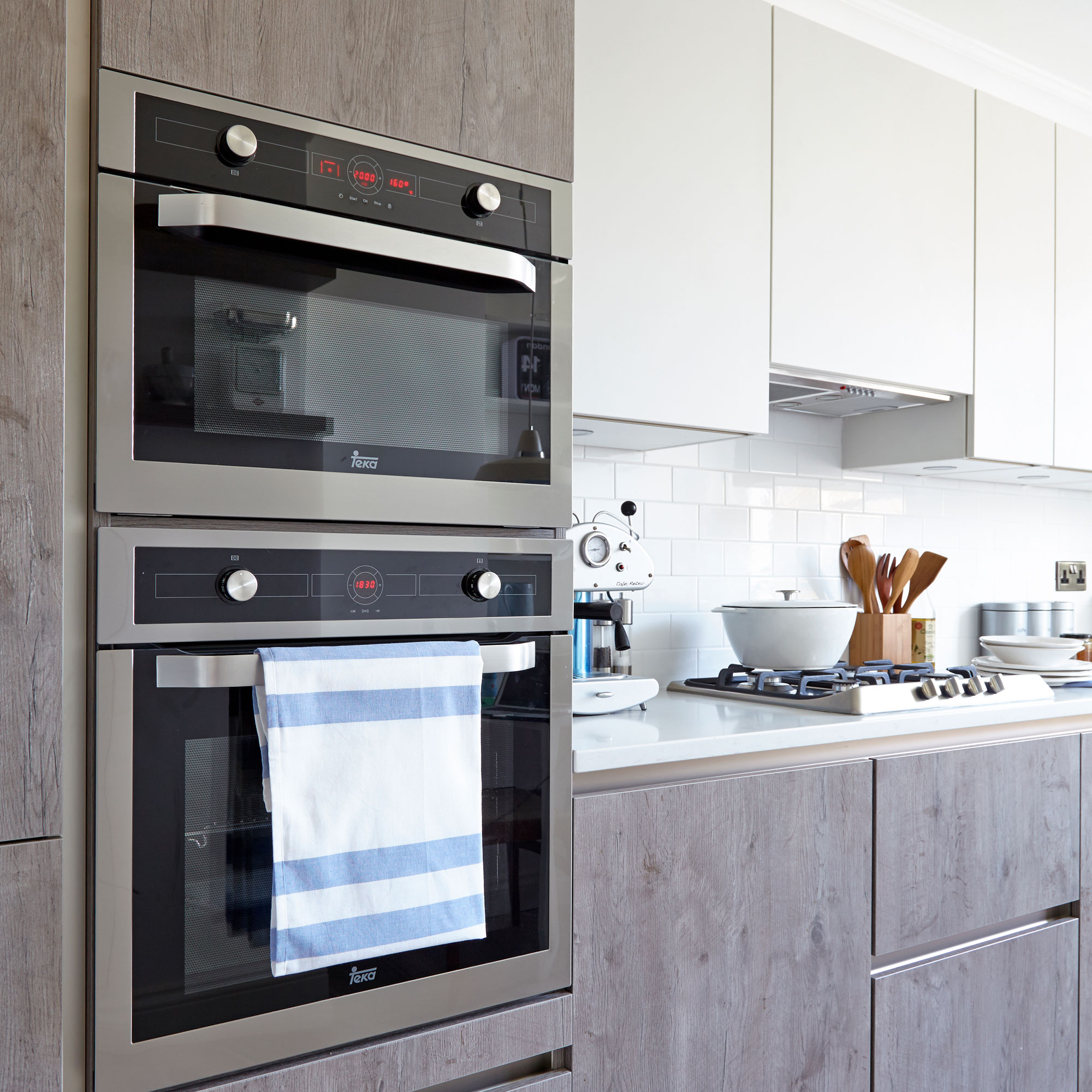
6. Not rinsing after cleaning
After spending the time and effort on cleaning your oven, don’t fall at the final hurdle by forgetting to rinse.
Not rinsing ‘can leave residue that may smoke or give off odours the next time you use the oven,’ explains Ava. This is especially true if you use a traditional or more chemical-based oven cleaner.
‘After cleaning, wipe the oven down with a damp cloth to remove any cleaner residue.’
7. Trying the TikTok hack of using dishwasher tablets
You may have seen the TikTok hack of using dishwasher tablets to clean an oven. However, the experts are wary of this idea.
‘I wouldn’t recommend using this popular hack,’ warns Colin. ‘The detergent in a dishwasher tab is often quite concentrated so it’s not recommended for contact with hands or skin. Plus, the bulk of most tabs is salt which isn’t effective for cleaning when left to soak for a period of time.’
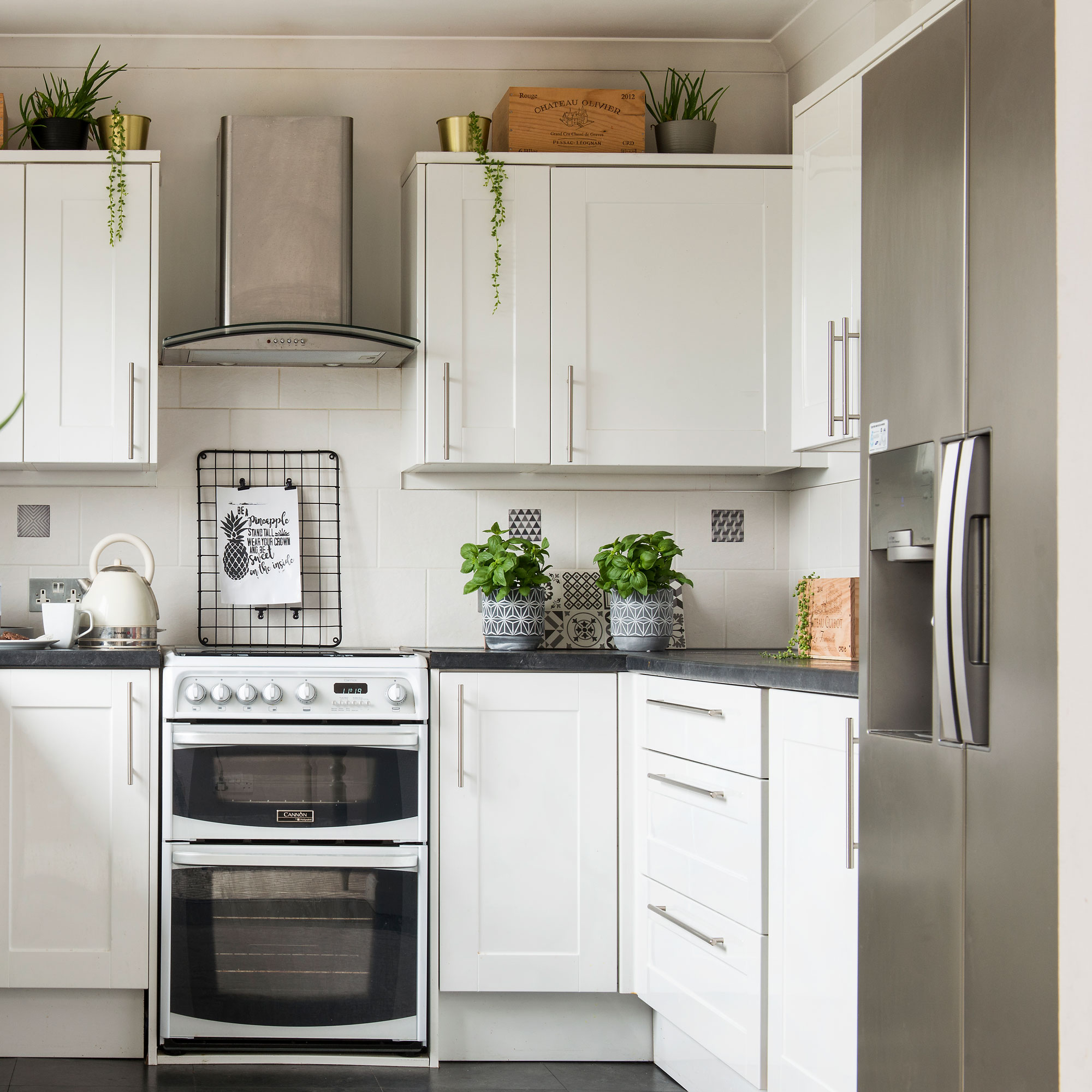
FAQs
Why is it important to regularly clean your oven?
There are a few reasons why you’ll want to keep on top of cleaning your oven. Firstly, a dirty oven can take longer to heat up and may not cook food as evenly.
‘If you have to keep opening the door to check on the food (because it is so dirty) this allows heat to escape and decreases the oven's cooking temperature, forcing it to work harder,’ explains Colin from Zanussi. This also means by not cleaning your oven, you're increasing your energy bills...
‘Also, by not cleaning an oven regularly the meals cooked in it can become cross-contaminated by previous meals – you don’t want your cakes flavoured with hints of a roast dinner or a curry,’ he concludes.
There’s also the potential fire risk of accumulated grease and food debris.
How often should I clean my oven?
The experts agree that you should give your oven a deep clean every three months or so. And once you start getting into the habit of routinely cleaning your oven, you should only need to give it a quick wipe down every month.
While a deep clean may take a few hours, especially if you’re leaving the racks to steep, a monthly wipe down should only take 15-20 minutes.

Ellis Cochrane has been a Freelance Contributor for Ideal Home since 2023. Ellis has been writing about homes, interiors and gardens for four years now, with her also contributing to House Beautiful, Country Living, Expert Reviews, Real Homes and Stylist.